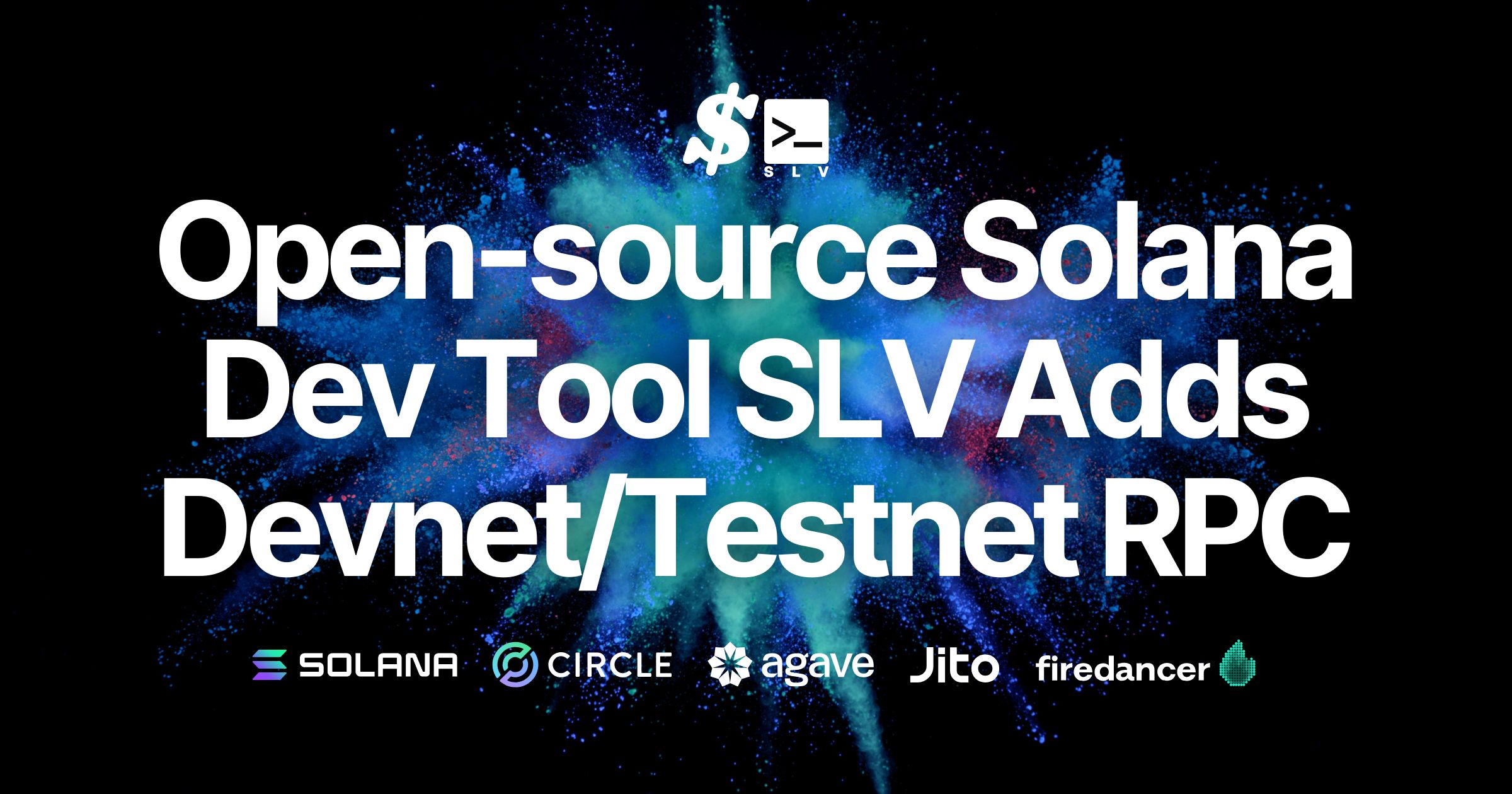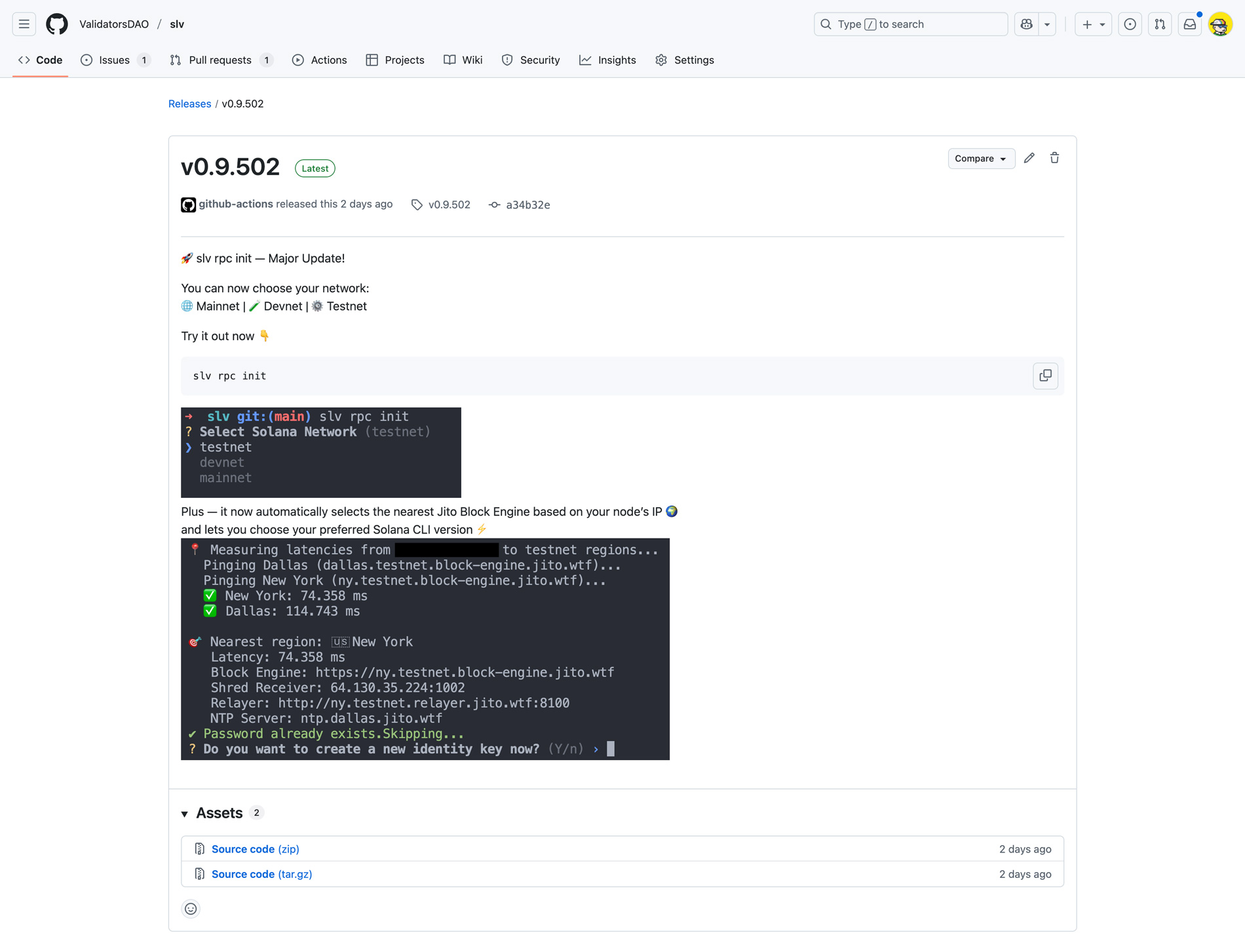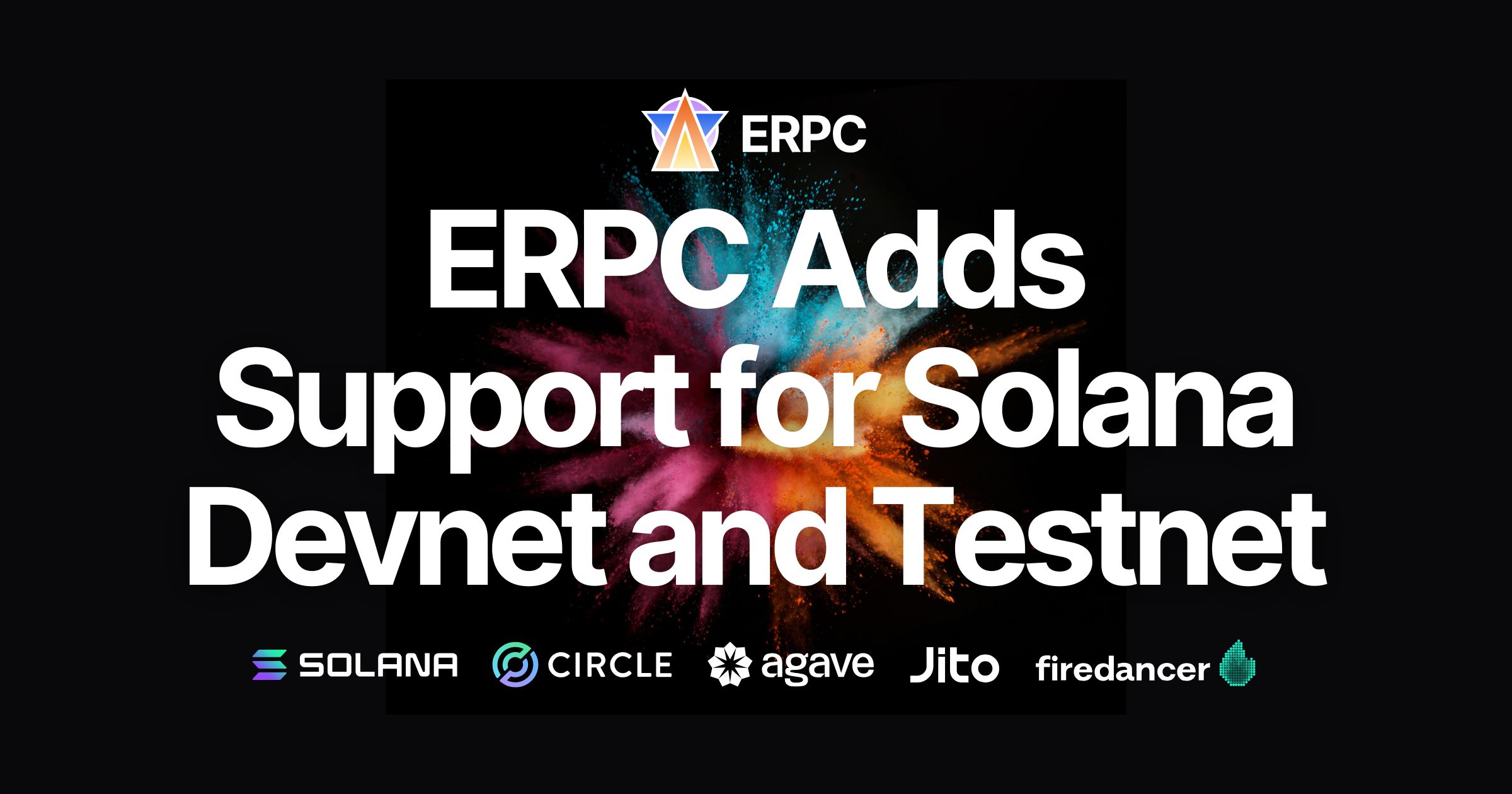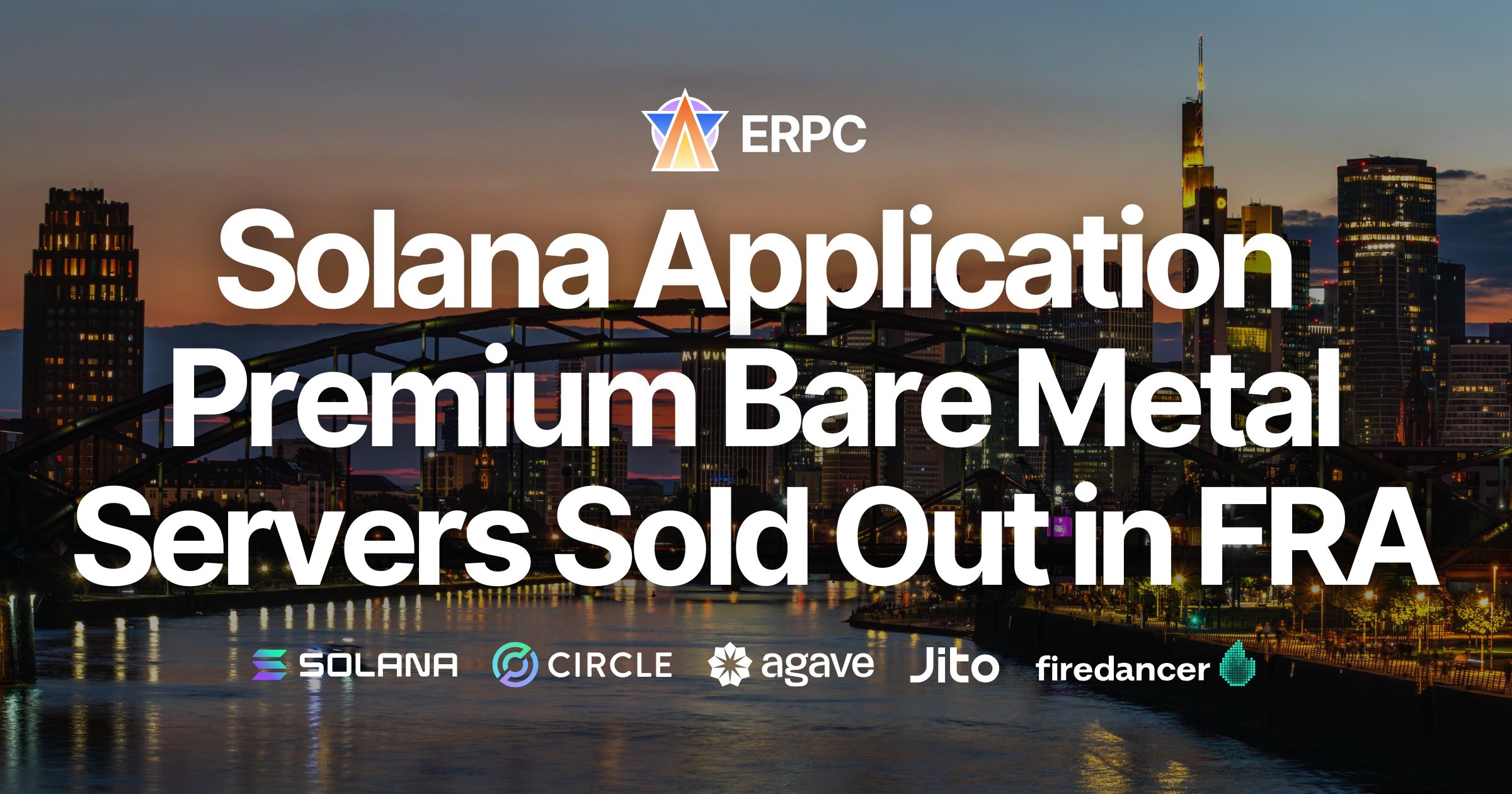Open-source Solana Dev Tool SLV Adds Devnet/Testnet RPC Support and Automatic Jito Block Engine Optimization
Open-source Solana Dev Tool SLV Adds Devnet/Testnet RPC Support and Automatic Jito Block Engine Optimization

ELSOUL LABO B.V. (Headquarters: Amsterdam, the Netherlands, CEO: Fumitake Kawasaki) and Validators DAO have released version v0.9.502 of the open-source Solana validator and RPC automation framework SLV.
This update introduces official support for Solana Devnet and Testnet within the RPC management feature, as well as automatic selection of the optimal Jito Block Engine region.
This update introduces official support for Solana Devnet and Testnet within the RPC management feature, as well as automatic selection of the optimal Jito Block Engine region.
Simplifying Solana RPC Operations

The updated RPC setup command now lets users select Mainnet, Devnet, or Testnet environments.
This enables seamless transitions between development, testing, and production—all from the same CLI.
With just a few commands, users can initialize RPC environments and dramatically reduce setup time and operational complexity.
With just a few commands, users can initialize RPC environments and dramatically reduce setup time and operational complexity.
SLV has continuously expanded its automation capabilities to make Solana validator operations simpler and more reliable.
This update further enhances that mission, automating the entire RPC process—from initialization to optimization—reducing the operational workload while improving overall efficiency.
This update further enhances that mission, automating the entire RPC process—from initialization to optimization—reducing the operational workload while improving overall efficiency.
GitHub Release: https://github.com/ValidatorsDAO/slv/releases/tag/v0.9.502
Automatic Jito Block Engine Region Optimization
Previously, when using the Jito client, operators had to manually identify the nearest Block Engine and configure its region URL.
SLV also provided region selection options in earlier versions, but this process has now been fully automated.
SLV also provided region selection options in earlier versions, but this process has now been fully automated.
In SLV v0.9.502, the system automatically measures latency between the node’s IP and all available Jito Block Engine endpoints, selecting the region with the lowest latency in real time.
This ensures the node always connects to the most optimal Block Engine without any manual configuration.
This ensures the node always connects to the most optimal Block Engine without any manual configuration.
This automated selection maximizes network efficiency even when nodes and Block Engines are located in different regions, improving both transaction throughput and consistency.
A process that once required manual tuning can now be completed automatically, enabling more intuitive and efficient operation.
A process that once required manual tuning can now be completed automatically, enabling more intuitive and efficient operation.
Automation and Quality in SLV
SLV is more than just a CLI tool—it is a comprehensive foundation designed to automate and streamline both validator and RPC operations for Solana.
It already supports multi-node operations and remote management, and has been adopted globally by individuals and organizations alike.
It already supports multi-node operations and remote management, and has been adopted globally by individuals and organizations alike.
A secure local UI application is also planned for future releases.
This will allow operators to perform all validator-related tasks—such as node startup, upgrades, stake market participation, and monitoring—through a simple graphical interface.
By enabling full management from a single dashboard, SLV aims to make high-quality Solana node operation accessible to everyone.
This will allow operators to perform all validator-related tasks—such as node startup, upgrades, stake market participation, and monitoring—through a simple graphical interface.
By enabling full management from a single dashboard, SLV aims to make high-quality Solana node operation accessible to everyone.
Monitoring Enhancement and Quality Maintenance
SLV will enhance its alerting and monitoring capabilities, enabling validators to track operational status in real time.
By detecting anomalies or latency early, operators will be able to respond to incidents and maintenance tasks faster and with greater confidence.
By detecting anomalies or latency early, operators will be able to respond to incidents and maintenance tasks faster and with greater confidence.
Maintaining node stability and operational quality is essential not only for earning users’ trust and stake delegation, but also for continuing to receive support from the Solana Foundation’s delegation program.
Consistent monitoring and quality assurance are key to sustaining long-term validator operations.
Consistent monitoring and quality assurance are key to sustaining long-term validator operations.
These monitoring features will utilize RPC connections.
They are designed to work with both self-hosted RPCs deployed via SLV and with external endpoints such as ERPC or any other Solana RPC by simply replacing the URL.
This flexibility ensures compatibility across different environments—from local development setups to full-scale production networks.
They are designed to work with both self-hosted RPCs deployed via SLV and with external endpoints such as ERPC or any other Solana RPC by simply replacing the URL.
This flexibility ensures compatibility across different environments—from local development setups to full-scale production networks.
SLV is open-source and offers a high degree of configurability, allowing users to fully customize their setup.
While advanced customization may require technical expertise, SLV continuously improves usability for frequently modified configurations to make them accessible to all users.
The framework maintains full flexibility for experts while simplifying everyday operations, with a future roadmap to support configuration directly through the UI.
While advanced customization may require technical expertise, SLV continuously improves usability for frequently modified configurations to make them accessible to all users.
The framework maintains full flexibility for experts while simplifying everyday operations, with a future roadmap to support configuration directly through the UI.
Challenges Addressed by ERPC and Validators DAO
- Transaction failures and latency fluctuations common in standard RPC environments
- Performance throttling by many infrastructure providers
- Significant impact of network distance on communication quality
- Difficulty for smaller projects to access high-quality infrastructure
We encountered these issues firsthand while developing Epics DAO, a Solana-based NFT card game project built to support open-source initiatives.
To overcome them, we developed our own platform and now provide both ERPC and SLV as part of that foundation.
To overcome them, we developed our own platform and now provide both ERPC and SLV as part of that foundation.
Financial and trading applications are especially mission-critical, where even minor latency or errors directly affect user experience.
Because Solana combines distributed validators with complex Web3-specific components, many projects struggle with network instability and unpredictable performance.
Because Solana combines distributed validators with complex Web3-specific components, many projects struggle with network instability and unpredictable performance.
Through ERPC and SLV, we provide the high-performance infrastructure required for modern Solana development, enhancing developer and user experiences across the ecosystem.
- ERPC Official Site: https://erpc.global/en
- SLV Official Site: https://slv.dev/en
- elSOL Official Site: https://elsol.app/en
- Epics DAO Official Site: https://epics.dev/en
- Validators DAO Discord: https://discord.gg/C7ZQSrCkYR



